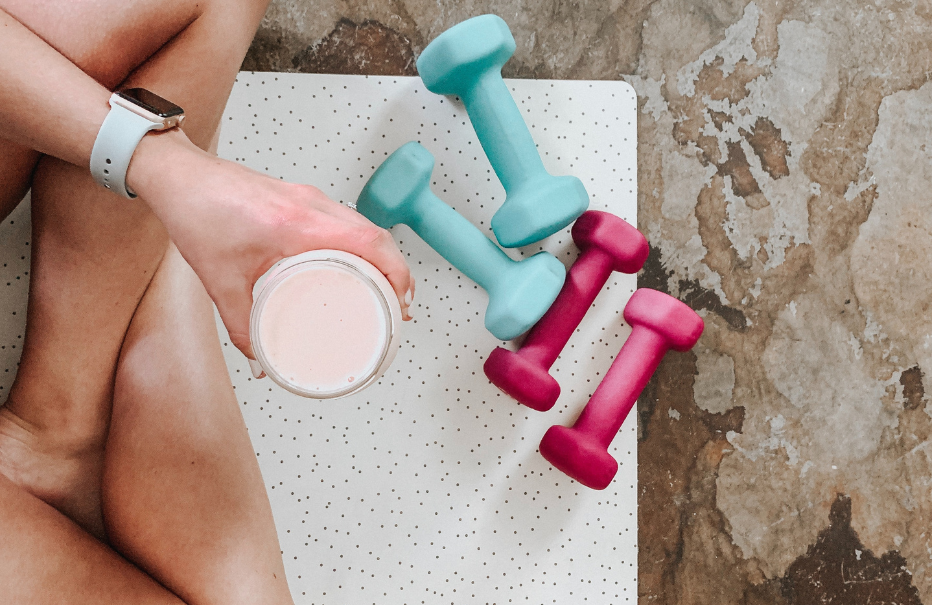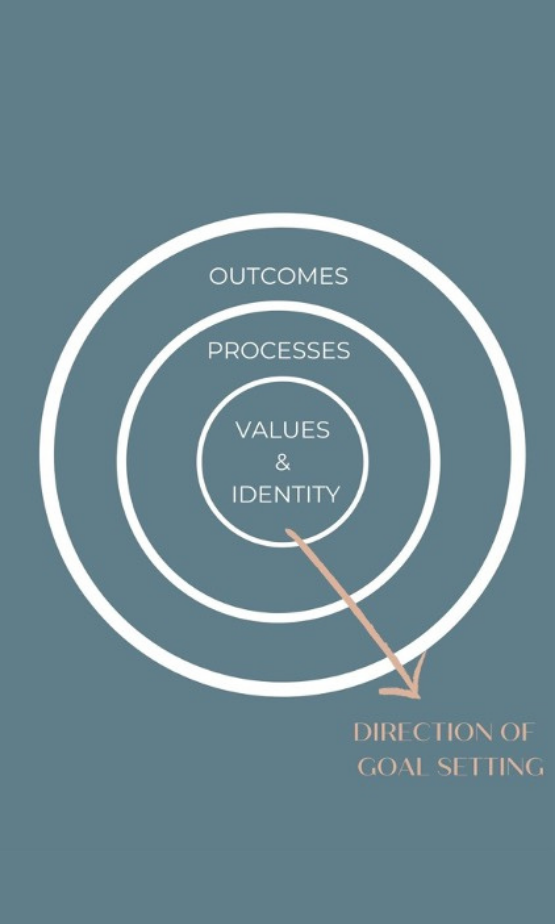
We are almost a quarter of the way through 2022, a year where we all started off with more hope that this year would be different and we’d get back to living life the way we did before. But so far that hasn’t been the case and for many people, it might feel like the hangover of last year’s lockdown hasn’t subsided...
If you’re feeling unmotivated, out of sorts and generally still a bit (or a lot) stressed then know that you aren’t alone. The ongoing effects of this pandemic are still bubbling away. From talking with many of the team here at AP it’s a trend we’re definitely seeing more of in the clinic - our clients are reporting more niggling and nagging injuries that are taking longer to settle, ongoing stress and anxiety, poor sleep patterns, altered work, home life and exercise regimes and an overall difficulty getting back into any sort of routine as everything around us continues in a state of flux.
As a health coach, a huge part of my job is to help people change their behaviour to support and optimise their health, particularly through times of adversity. I know that our team here at AP has an armoury of tools that we teach people time and time again. Very often, we see them pick up those tools, make some changes and go away feeling better. But does it last? Just because we told you to do it, will the change stick? What makes you carry on with those health-enhancing behaviours once your appointments stop? Very often, life gets busy and good intentions fall by the wayside. And given that we’re all humans here too, we know that the wayside is usually mere seconds away!
So how do you prioritise your physical and emotional wellbeing? How do you choose strategies and coping tools that not only work for you but are ones that you’ll keep practising even when times are tough?
If you’re still reading this blog, chances are you’ve already started to consider looking after your wellbeing. And somewhere in that thought process, you may have begun to consider why it’s important to you. So, let's have a go at making that a little more formal.
What would your answer to this question be?
“Why is it important for me to look after my physical and emotional health?”
Your first answer will give you some information but is likely to be a bit on the superficial side. So let's ask ‘why’ again and keep going until we start to hit the real heart of the matter. It might look something like this:
Answer one: because I’ve been feeling really stressed
Why is it important to you to feel less stressed?
Answer two: because I become a really grumpy person when I’m stressed
Why is it important not to be so grumpy?
Answer three: because I often feel guilty at the end of the day for being that way with my family
Why is it important to you to change how you feel at the end of the day?
Answer four: because I’m so busy and I feel like I have so little time with my family that I want it to be happier. Life seems to move so fast and I don’t want to miss out on the time we do have together.
Why is that important?
Answer five: because I want them to feel loved and connected to me
Asking why (as many times as you need to, there’s no magic number) can start to give you a sense of what’s driving you to consider your wellbeing. You can see in this example that talking about the desire to decrease an unpleasant feeling, in this case stress, moved to unearth a couple of fairly powerful values: love and connection. This exercise requires you to slow down and consciously consider the deeper drivers that underpin your motivation in any given instance.
This simple exercise of asking ‘why’, applied to all sorts of situations, can really start to help you gain a little clarity. You may not come up with all the answers right away and that’s perfectly ok. Think of this as an experiment; you’re constantly collecting data and learning more about what’s worth keeping and what’s worth chucking. Along the way, you’ll begin to uncover a clearer sense of who you want to be, and that’s pretty crucial if you want to be effective in making change.
So, you’re beginning to understand your ‘why’ - but what helps you steer the course?
They are, at the simplest level, the things you find meaning in life. They’re what you care about and consider to be important. For example, ‘kindness’, ‘connection’ and ‘achievement’ are all values, as are ‘health’, ‘community’ and ‘challenge’. When we have clarity over our values, we can use them as a filter for our decisions and as a guide to our actions. This helps us to make more ‘towards moves’ in line with what we really care about, rather than being dragged along by life in a series of ‘away moves’ which leaves us feeling unhappy, unmotivated and unfulfilled.
So how do you know which values are important to you? There are many different exercises to help uncover the answers to this but let’s have a crack at this visualisation exercise…
Close your eyes and imagine you’re sitting in a nice room or a beautiful garden, somewhere you feel comfortable. Take a moment to acknowledge the body you are in and the mind that comes with you. This body, this mind, has been with you for many years, working hard to make a happy life.
Now imagine you’re in your later years, sitting in the same spot contemplating the life you’ve lived. As you look back, you feel a deep sense of satisfaction, joy and contentment. Life hasn’t always been easy but you’ve managed to stay true to yourself to the best of your ability.
Which core values are represented in this life?
What values came through for you? Generosity? Knowledge? Creativity? Health? The list can be long and if you’re just beginning this journey maybe talking about values with people you trust could help further define them.
Now here’s where you often start to have more questions than answers. A few common ones might be:
Are any values more important than others? Nope!
Should my values always stay the same? Nope!
Can I have more than one value? Sure!
Life changes and so it makes sense that your values change as you go through different stages. What matters here is that you have some sense of what’s important to you. The impetus to keep going when the going gets tough…
So you’ve defined your ‘why’ and your underpinning values. This has helped to hone in on what’s important to you, identify what to prioritise and where to put your precious time and energy. Having a clear sense of your values ultimately enhances your motivation, making it more likely you’ll stick with your plan of change. But what about actually doing it? How do you ensure that when (not if) your initial plan starts to waiver, you can stick with it?
In his book ‘Atomic Habits’ James Clear defines three levels of behaviour at which change can occur:
Outcome - what you get
Processes - what you do
Identity - what you believe

Most of us will be familiar with setting a goal based on the outcome we want, like being able to run 5km, earning more money or losing weight. So then we decide on a process to achieve that goal and go about implementing it. More often than not, life gets busy, we have setbacks and it gets hard to maintain that process so we fall off the wagon.
How about if we flipped the way we set our goals? This is called identity or values-based goal setting. We start with ‘our why’ or our values and create a process that reflects that, and whilst we care about the outcome, it’s not the main driver for our behaviour or actions.
We hone our focus on the process. Here it's all about small wins. Changing habits is a tricky business and your brain can be pretty hard-wired to work a certain way. If you’re trying to change things up, the kindest way to do this is through a series of small wins. Translated, that means MAKE IT EASY, so easy that you almost can’t fail. I think we can all relate to the idea that we need success to help us move forward, repeatedly setting ourselves an unsustainable target isn’t worth anyone’s time and energy.
So you’ve figured out your ‘why’, you're becoming clearer on your values and you have some small actions you can take to achieve that values-based goal. Hopefully, if you’ve made the actions small enough then chances are you’re already feeling pretty confident to get going with that today. And if you keep applying this formula you’re well placed to implement some really great tools to look after yourself and re-create some routine in your life.
Still feeling a little lost? Maybe you want to delve into what this looks like specifically for you? No problem! Book in for a complimentary 30-minute Health Coaching call to give you a taste of what Health Coaching could do for you. Or if you’re already sure that Health Coaching would be of benefit to you, you can book online to get started straight away with one of our package deals.
Recent Comments